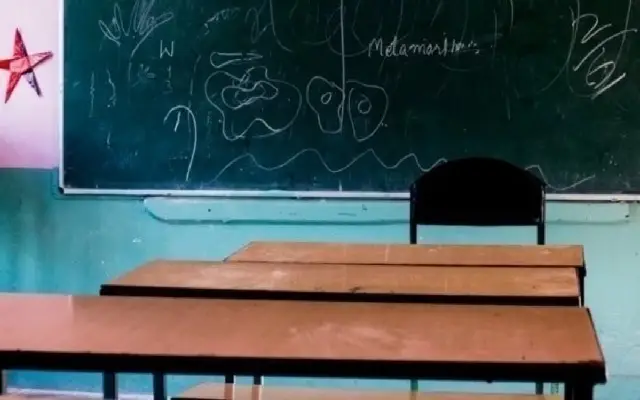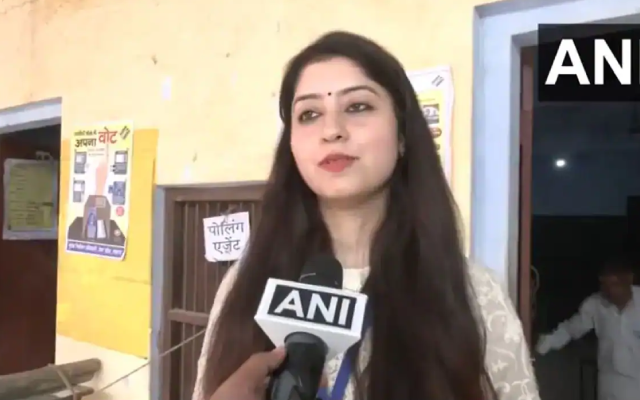 The controversy over minimum ticket pricing in Karnataka is back. This time, popular producer and distributor Rockline Venkatesh has taken up the issue. Saaho released last month and garnered huge success all over India. Karnataka was no exception, as the film released across the state in Telugu, Hindi and Malayalam languages. Even though was panned critically, it did manage to affect a successful Kannada film. Vedanth KT’s Sandalwood insider has more.
The controversy over minimum ticket pricing in Karnataka is back. This time, popular producer and distributor Rockline Venkatesh has taken up the issue. Saaho released last month and garnered huge success all over India. Karnataka was no exception, as the film released across the state in Telugu, Hindi and Malayalam languages. Even though was panned critically, it did manage to affect a successful Kannada film. Vedanth KT’s Sandalwood insider has more.
Kurukshetra which released on August 9 got a great opening. The film did great business even after three weeks in the theatre. The shows were running houseful. However, when Saaho released on August 30, the number of shows of Kurukshetra was decreased in multiplexes. Some single screens even removed Kurukshetra to accommodate Saaho, when the film was doing great business.
This situation angered Rockline Venkatesh, who distributed Kurukshetra all over Karnataka. “It is high time minimum ticket pricing is introduced in Karnataka. Kannada films are suffering. When a film starring a superstar like Darshan is suffering, then what will be the condition of small budget Kannada films. If Kannada films must survive, then minimum ticketing price is a must,” Rockline said recently at a media interaction.
The reason for multiplexes and theatres to give more shows for other language films is ticket pricing. They see films only from a business point of view. They can charge 400 rupees for a high budget film like Saaho and cannot expect to price the tickets the same for a Kannada film, which is generally made on a smaller budget. As the revenue received is shared between distributor and multiplexes, they intend to make more money with these big-budget films of other languages, as they are marketed well and there are more footfalls at the opening weekend. But if the content fails just like Saaho failed, then they get back to screening Kannada films.
For instance, Kurukshetra was having a great run at a popular multiplex in Bengaluru. When Saaho was released, the multiplex reduced the shows drastically. However, after the first four days [the Monday of that week was Ganesh Chaturthi], they increased the shows of Kurukshetra. Kurukshetra suffered as they did not get the shows which they deserved in during those four days. They could have got more collections in these four days.
Some single screens in Bengaluru, which work on a percentage basis also removed Kurukshetra, when the film was running successfully. This has affected the film’s collections. If Saaho had not released, the film would have collected more.
A couple of years back, the state government had announced a price cap of Rs 200 for movie tickets in the state. The government decided to rein in multiplexes following pressure from the film industry. But the move was short-lived as multiplexes filed a suit. The court gave a judgment in favour of multiplexes and people had to revert to pay huge amounts for their screen time like before. The State government did not show much interest in fighting the case thereafter.
Producers raised the issue again with the government last year, and requested them to come up with a uniform rate; to go by the rule that has been set in other states. But the government turned a deaf ear to their pleas. In states like Tamil Nadu and Andhra Pradesh, the ticket rates are not as high as in Karnataka. Even if we compare the rates in cities like Mumbai and Delhi, the ticket rates in Bengaluru are comparatively higher.
Exhibitors are against a price cap. Sachin, the manager of a popular multiplex said, “The demand by certain producers and distributors is wrong. If people are ready to pay high ticket prices to watch films, how can the government stop them? No one is forcing anyone to pay those prices and watch a film. We already have a lot of expenses to cover. The rentals are very high. We need to pay more than 50 percent from ticket sales to distributors in the first week of release. With the payment of staff and other expenses, it is really difficult to survive and now, if there is a cap on ticket prices, we will not be able to survive at all. I hope the government does not mess with the demand and supply but implement a framework that ensures the best performance of market forces.”
If ticket price capping is reintroduced, there is also the danger that there will be an increase in the black market. In the past, people used to buy tickets in black at double the price. The same will happen now, as tickets may be purchased in bulk by a few,” he added.
A popular producer, who does not wish to be named said, “The statement by Rockline Venkatesh is funny. He did not have any problems when his own productions in other languages were screened at higher ticket prices. Today because the Kannada film, which has been produced by his close relative has suffered, he is talking about price caps. Bajrangi Bhaijaan and Kabali, which were produced by him had high ticket prices when released in Bengaluru. At that time too, there were protests by many producers. But he did not even speak a word then and today he is giving such statements. If ticket capping of price comes into play, Kannada films will also suffer. Just imagine, if a ticket price cap was on, films like KGF would have suffered so much and there is no way, it would have collected 100 crores in Karnataka itself. With so many big Kannada films releasing soon, it would be foolish to introduce a cap on ticket prices.”
Not all producers agree with this. Sajjan, who is co-producing a Kannada film called 2 Nights and 4 Walls said, “Ticket pricing caps will help small budget films. If the ticket price is uniform for all the languages, then we will also get the desired number of shows, else we are bound to suffer. More preference is given to other language films and this should stop. Ticket cap pricing is the only solution right now. The Kannada film industry will keep facing this problem until and unless this issue is sorted. In spite of the subsidy given by the government, and whatever initiative the Kannada industry takes, films coming from other languages hijack the final result of a good Kannada film.”
From the audience’s point of view, a ticket price cap is a win-win situation for them. Aparna, an employee of a retail giant, said, “A ticket price cap is a must. The ticket rates are very high during weekends. This is the only free time we get and the ticket prices are exorbitant. A family of four ends up spending nearly 1500 to watch one film. Negotiating the horrendous traffic and then spending so much to watch a film, is just not on. It is high time the government regulates the ticket prices. If multiplexes have an issue, they must find a way to fix it through earnings from other avenues, like increasing the advertising or through food sales. But the ticket rates should be decreased. Today, we have the option to watch films on Netflix and Amazon Prime; With such intense competition, it is foolish for the multiplexes to increase ticket prices.”
Now all eyes are on the new state government which is headed by BS Yediyurappa. With many film personalities like Jaggesh and Tara close to the Chief Minister, hopefully, we can expect a decision soon on this contentious subject. Any decision taken to regulate ticket prices will have both pros and cons for the industry and its stakeholders, and it is hoped that the greater good will guide the decision.


















